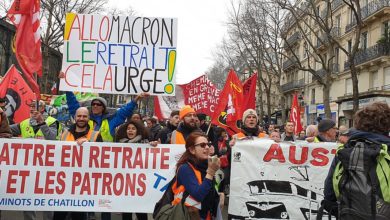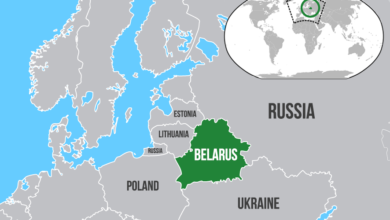On March 19, as many as 3 million French workers took to the streets as part of a nationwide general strike. Demonstrations were held in about 200 cities and towns across the country. It was the second general strike in only two months, with 2.5 million people protesting on Jan. 29.
|
Workers are fighting for wage increases, employment protection, tax increases for the rich and a freeze of public-sector layoffs. The number of unemployed workers has reached two million bringing the unemployment rate to 8 percent, which is expected to reach 10 percent in the next 12 months. A survey published March 16 revealed that 74 percent of French people supported the general strike.
Corporations have been taking advantage of the crisis to get rid of workers. Oil giant Total sparked public outrage when it announced layoffs for 555 of its employees, despite reaping around $18 billion in profits for 2008. One-fifth of 1 percent of these profits could have paid those workers for a whole year at $65,000 each.
Continental AG workers set tires ablaze March 25 to protest plans to close their tire factory. Their banners read, “Continental, thief of our futures” and “Caviar for shareholders; Unemployment for workers.”
The government is concerned as workers become more united and militant. French workers held a top-level 3M manager hostage for two days in his office until obtaining guarantees that negotiations would resume. Factory workers of electronics giant Sony had recently held the company’s CEO hostage overnight demanding decent severance. The government also fears that the victorious six-week strike in the French colony of Guadeloupe will further embolden and radicalize French workers.
These tactical innovations and increased militancy are positive developments that give the movement a dynamic character. Nevertheless, they are not sufficient to realize the full potential of the working-class struggle.
Leading French reformist and social-democratic forces have pinned the blame for the economic hardship on the reactionary administration of President Sarkozy. This line conceals the real cause of the global economic crisis—the capitalist system itself—and does little to advance the working-class movement beyond limited reforms and toward a revolutionary perspective.
Should French workers extract major concessions from the bosses and their bourgeois government, that would be a progressive and welcome development. At the same time, the global capitalist crisis and the workers’ struggle it has fueled are creating the necessary conditions to expose the bankruptcy of capitalism on a mass scale. This opportunity must be seized.
Reforms and concessions may get workers through this one crisis, but the only permanent solution to the recurring crises of capitalism is the eradication of the profit system. The only solution is socialism.






